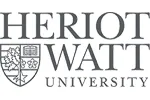

the United Kingdom
Heriot-Watt University| The award | How you will study | Study duration | Course start | Domestic course fees | International course fees |
|---|---|---|---|---|---|
| PhD | Full-time, Part-time | find out | September | 0 | 0 |
The Intergovernmental Panel on Climate Change agreed some two decades ago that the world is warming up and that this effect was human-induced through our dependence on fossil fuels and their impact on greenhouse gas (GHG) emissions. The biggest contributor to GHG emissions is the built environment, accounting for up to 50% of global carbon dioxide emissions. The current UK infrastructure, technologies and lifestyle were developed for a high carbon economy; to achieve an 80% emissions cut at an acceptable cost, all of this infrastructure will have to be significantly adapted.
There is no single solution to the climate change dilemma. A complex combination of new technologies, improved systems and changed behaviours, together with realistic expectations for a lower carbon economy is required. Historical advances in technology (cars, PCs, mobile phones) were easily accommodated due to the immediate benefit derived from their use. Actively making decisions to reduce energy consumption is more difficult because the benefit is futuristic and less easily measured in practical terms. The cost manifests itself in potentially unpopular lifestyle changes. Despite this, the World Commission on Environment and Development remains convinced that it is possible to build a future that is prosperous, just, and secure. This possibility relies on international cooperation, and an adoption of sustainable development objectives as a priority.
Researchers within this theme take a holistic view of the building process from early design concept and construction right through to occupancy, maintenance and eventual demolition. This unique approach helps to foster a greater collaboration between all of the teams involved e.g. the architects, investors, contractors, engineers etc, as well as evaluating the carbon impact and sustainability of the whole life cycle. Members of the group have active research interests which aim to ensure that buildings are fit for purpose, meet all government standards for carbon reduction, reduce costs, and provide a healthy environment for their users.
Fees for this course can be found on the tuition fees page.
Scholarships and bursaries
We aim to encourage well-qualified, ambitious students to study with us and we offer a wide variety of scholarships and bursaries to achieve this. Over £6 million worth of opportunities are available in fee and stipend scholarships, and more than 400 students benefit from this support.
View our full range of postgraduate research scholarships.
We welcome applications from suitably qualified candidates. Please visit our How to apply page.
Below are some suggested courses at other providers that you may also be interested in:
Applied Financial Mathematics University Certificate
Distance and Independent Studies Center, University of Kaiserslautern-Landau (RPTU), Germany
Find out moreIf you do not meet the entry requirements for this course then consider one of these postgraduate preparation courses from another institution:
Graduate Diploma of Engineering (Industrial Automation)
Engineering Institute of Technology
Find out moreThere are 332 other courses listed from Heriot-Watt University. A selection of these are displayed below:
Actuarial Management MSc, Postgraduate Diploma, Postgraduate Certificate
Heriot-Watt University
Find out moreActuarial Science MSc, Postgraduate Diploma, Postgraduate Certificate
Heriot-Watt University
Find out moreActuarial Science and Diploma in Industrial Training BSc (Hons)
Heriot-Watt University
Find out moreSee other universities in Edinburgh
Find out more about studying in the United Kingdom
As an international student you may require a valid visa to study at Heriot-Watt University. Read more about the requirements in our Guide to the United Kingdom International Student Visa Requirements.